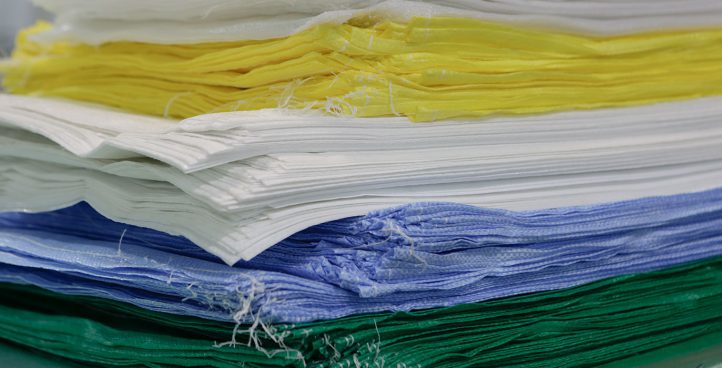The packaging industry is undergoing a transformation, with woven bags emerging as a key player in modernizing supply chain logistics. Woven bags, known for their durability, cost-effectiveness, and environmental sustainability, are being adopted more frequently by businesses across various industries. These bags are not only practical for packaging but also bring value to the supply chain in ways that traditional packaging materials simply cannot match.
In this blog post, we’ll explore how woven bags are revolutionizing supply chain packaging, helping companies reduce costs, enhance efficiency, and contribute to sustainability. We’ll also discuss the benefits, types of woven bags, and why businesses are increasingly relying on them for their packaging needs.
The Growing Demand for Efficient Supply Chain Packaging
Supply chain packaging plays a crucial role in ensuring that products are transported efficiently, safely, and sustainably. As businesses expand globally and industries evolve, the demand for better, more efficient packaging solutions has skyrocketed. Companies are constantly seeking ways to lower shipping costs, improve logistics, reduce environmental impact, and streamline their operations.
Traditional packaging materials like cardboard boxes, plastic containers, and wooden crates are being replaced by innovative alternatives such as woven bags. These bags are proving to be a game-changer for industries such as agriculture, food, textiles, and construction, where bulk packaging is essential for the smooth functioning of the supply chain.
What Are Woven Bags?
Woven bags are made from synthetic fibers such as polypropylene or polyethylene, which are woven together to create a durable, strong, and flexible fabric. These bags are commonly used for bulk packaging and can be customized to meet specific needs. Unlike traditional packaging materials, woven bags offer a level of flexibility and durability that makes them ideal for long-distance transport and handling heavy loads.

Key Features of Woven Bags:
- Durability: Woven bags are designed to handle heavy-duty applications. Their strong fibers can withstand significant wear and tear, making them ideal for packaging bulk goods.
- Versatility: Woven bags come in various sizes, shapes, and styles, making them adaptable to different products and industries.
- Eco-Friendly: As a reusable packaging option, woven bags help reduce waste, contributing to more sustainable business practices.
These unique characteristics are transforming the way companies approach packaging, especially within supply chains that demand high efficiency and sustainability.
How Woven Bags Are Revolutionizing Supply Chain Packaging
Woven bags are transforming the packaging landscape by offering businesses a cost-effective, durable, and sustainable solution for packaging bulk goods. Their strength, versatility, and eco-friendly nature make them an ideal choice for industries seeking efficiency in their supply chain operations.
1. Cost-Efficiency and Reduced Packaging Costs
One of the most significant advantages of woven bags in supply chain packaging is their cost-effectiveness. Traditional packaging materials such as plastic and cardboard can be expensive, especially when considering the cost of manufacturing, storing, and disposing of them. Woven bags, on the other hand, are highly affordable and offer a longer lifespan.
Woven bags are lightweight, which means they reduce shipping costs, especially for bulk shipments. Their strength allows them to carry more weight without needing additional support or reinforcements, further lowering transportation expenses.
By switching to woven bags, businesses can reduce their overall packaging costs, increase profit margins, and optimize their supply chain.
2. Strength and Durability for Heavy-Duty Use
Woven bags are ideal for heavy-duty packaging needs. The strong, woven construction allows these bags to hold significant weight and resist tearing, making them a great choice for industries that deal with bulk materials such as agricultural products, chemicals, construction materials, and textiles. Whether it’s bags of fertilizer, rice, or construction aggregates, woven bags ensure safe and secure transportation of goods without worrying about product damage or packaging failure.
In addition to their physical strength, woven bags are also resistant to various environmental factors, such as moisture and UV rays. This makes them a suitable option for transporting products under challenging conditions, further enhancing their role in the supply chain.
3. Improved Storage and Handling
Woven bags are designed for efficient storage and handling. They are stackable and can be easily stored in warehouses or transportation vehicles. Their flexibility allows them to fit into tight spaces, maximizing storage capacity and optimizing the use of available space in containers, trucks, or storage units.
Additionally, woven bags are lightweight compared to rigid containers such as plastic bins or cardboard boxes. This not only reduces the overall weight of the shipment but also simplifies the handling process during loading and unloading. Workers can easily carry and move the bags, speeding up logistics operations and improving overall efficiency.
4. Eco-Friendly and Sustainable Solution
In recent years, sustainability has become a critical focus for businesses across industries. Consumers and companies alike are increasingly concerned with the environmental impact of packaging materials, and woven bags are an excellent solution to these concerns. Unlike plastic bags, woven bags are reusable and recyclable, significantly reducing waste in the supply chain.
By using woven bags, companies can demonstrate their commitment to sustainability, reduce their carbon footprint, and meet the growing demand for environmentally conscious practices. Additionally, since woven bags are made from materials such as polypropylene, they can be easily recycled, helping to close the loop and create a circular economy for packaging materials.
Woven bags also contribute to reducing the overall reliance on single-use packaging materials, which has a long-lasting positive impact on the environment.
5. Customization for Branding and Marketing
Woven bags offer a unique opportunity for branding and marketing. They can be easily customized with logos, company names, and product details, allowing businesses to promote their brand while packaging products. This is especially valuable in industries where packaging plays a crucial role in consumer recognition, such as agriculture and food products.
Customized woven bags also help businesses stand out in competitive markets. With the ability to print vibrant colors and designs, companies can ensure that their products are easily identifiable, creating a lasting impression on consumers and clients.
6. Versatile Applications Across Industries
Woven bags are used across multiple industries, making them a versatile packaging solution in the supply chain. Some of the primary industries benefiting from woven bags include:
- Agriculture: Woven bags are commonly used for packaging grains, seeds, fertilizers, and other agricultural products. Their strength and resistance to environmental factors make them ideal for this sector.
- Food & Beverage: In the food industry, woven bags are used for bulk packaging of ingredients, grains, rice, sugar, and flour. The ability to customize these bags also allows for clear labeling and marketing.
- Construction: Woven bags are used to package sand, gravel, and cement, offering strength and durability to withstand the rough conditions of construction sites.
- Textiles: The textile industry relies on woven bags to package raw materials, finished garments, and textiles for shipping.
7. Regulatory Compliance and Safety
Many industries require packaging solutions that comply with specific regulations and safety standards. Woven bags can be designed to meet various regulatory requirements, such as food safety standards in the food industry or hazardous material packaging regulations in the chemical sector.
For businesses, this means they can rely on woven bags to meet legal standards while providing a safe, secure, and reliable packaging solution. This helps companies avoid fines, delays, and product contamination while streamlining compliance across their supply chains.
Conclusion
Woven bags are increasingly becoming an essential part of supply chain packaging, offering businesses a combination of cost savings, efficiency, durability, and sustainability. As industries continue to prioritize efficiency, environmental responsibility, and operational excellence, woven bags are set to play an even more significant role in revolutionizing packaging solutions.
From reducing packaging costs to enhancing storage and handling, woven bags provide businesses with the tools they need to improve their supply chain processes. Their versatility, strength, and sustainability make them the future of industrial packaging, helping companies stay competitive in a rapidly changing market.
As the packaging industry evolves, woven bags will continue to provide a reliable, eco-friendly, and cost-effective solution for businesses seeking to streamline their operations and enhance their environmental credentials.
